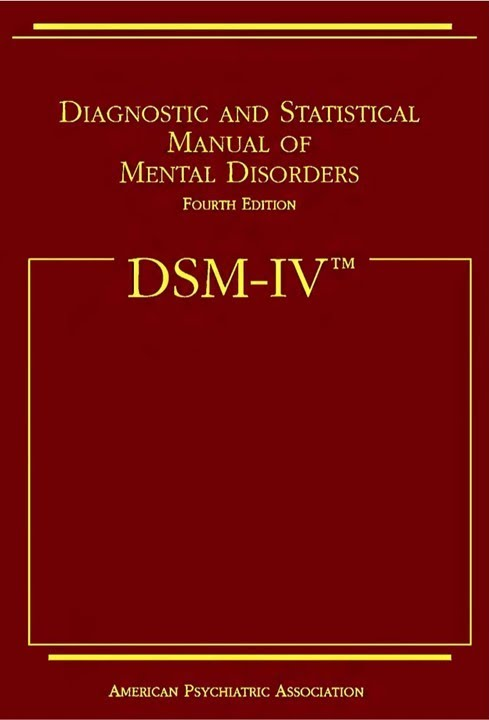Asperger is pronounced [æs.pɜːdʒəz], meaning "a-spuh-guh".
Who is Hans Asperger?
Translation of the French article "Qui est Hans Asperger ?".
Estimated reading time: 20 to 30 minutes.
This article focuses on the enigmatic figure of Hans Asperger, focusing on three aspects related to his name. Asperger's syndrome; Hans Asperger's alleged links with the Nazi regime; and the issues that lead some to see a hierarchy of autists in Asperger's research.
Is it the cause of Asperger's syndrome?

Asperger's Syndrome was incorporated into medical nosology in 1994, with the publication of the DSM-IV
(Diagnostic and Statistical Manual of Mental Disorders, fourth edition of the American Psychiatric Association).
A tribute to Dr. Hans Asperger, and a misunderstanding of his work.
Asperger's syndrome was created by Lorna Wing in 1981, after two decades of extensive study of autism. Wing realized that the definition of autism, based on the work of Leo Kanner and psychoanalytic theories, did not reflect the experience of autists. This realization therefore led her to seek a new approach to understanding autism (Steve Silberman, Neurotribes: The Legacy of Autism and the Future of Neurodiversity, 2015). It was during this exploration that she discovered the work of Dr. Hans Asperger. Asperger's research gave Wing insight into the range of expressions of autism. In honor of Asperger's contribution to autism research and his demonstrated empathy for autists, Wing chose to name the concept after him. Thus, in 1981, at a time when autism was only considered from a medical perspective, the term "Asperger's syndrome" was introduced. This concept was intended to illustrate the diversity of expressions of autism and thus to facilitate recognition and needs of all.
Over time, Asperger's syndrome gained legitimacy, culminating in its inclusion in the DSM-IV in 1994. However, Wing acknowledged that the DSM-IV and ICD-10 criteria were a departure from Asperger's work (Lorna Wing, Reflections on Opening Pandora's Box, 2005). Asperger's syndrome, as described by these organizations, does not accurately reflect Hans Asperger's work on autism (Leekam, S. &All; Manjiviona, J., Prior, M.). Since then, misunderstandings, questions, and inconsistencies have arisen about the intentions of medicine, about Dr. Hans Asperger, and about the range of expressions of autism.
Today, the term "Asperger's syndrome" is no longer used in medicine. In 2013, the DSM-5 informs of a : "grouping of autistic disorder, Asperger's syndrome, and pervasive developmental disorder into autism spectrum disorders. Researchers determined that these separate disorders are actually related conditions along a single continuum of behavior. [...]." And WHO translates Asperger's syndrome as "an autism spectrum disorder without disorder of intellectual development and with mild or no impairment of functional language" #6A02.0.

.
Partisan of Nazism?

In her book Children of Asperger's, Edith Sheffer echoes the convictions of her autist son to end the label of autism. He considers that "autism is not real".
Would you have done better during the Second World War?
In 1935, Dr. Hans Asperger, who was known for his intelligence, was promoted to director of the Department of Curative Education at the Vienna Children's Clinic. This institution was renowned for its quality of care and research in pediatrics in the early 20th century. That same year, Asperger founded a family. During this time, Nazism was on the rise in Germany. Asperger wrote about it:
"An entire people goes in a single direction, fanatically, with narrowed vision, certainly, but also with enthusiasm and dedication, with enormous discipline and control, with a terrible persuasiveness." (Steve Silberman, Neurotribes, 2015).
How to interpret his words? Some might see it as a validation of Nazism. But others would read instead the words of a Christian autist, detachedly expressing an assertive critique of Nazism through the notions of fanaticism, narrowed vision, and terrible persuasiveness, while acknowledging the dynamics of doing so (he, as a teenager, wished to revive the traditional Teutonic values of his country). Two months after his writings, Asperger became aware of the danger of Nazism, when Chancellor Engelbert Dollfuss was assassinated by SS men disguised as Austrian soldiers. Vienna was not safe from German fanaticism, nor was anyone. Austria was annexed by Nazi Germany in 1938.
What would you have done at that time? After the Anschluss, the Asperger service was targeted by the "Hereditary Sterilization Law" enacted by the Nazis as early as 1933, which, in other words, provided for the extermination of all citizens with mental signs deemed "undesirable. So, in the place of Dr. Hans Asperger, head of a family and a children's service, who was under Nazi surveillance, would you have taken the risk (for your patients, your colleagues, your family, yourself) to flee or to fight? ... No doubt you would have done as he did, opting for a so-called "tactical" collaboration.
Between collaboration and resistance: A nuanced reality
The reality of the Nazi occupation and the choices faced by the people of Europe are far more complex than the simple dilemma of resistance or collaboration. The Swiss sociologist Werner Rings demonstrates the existence of different types of collaboration in his book Living with the Enemy. European Peoples under Nazi Occupation, written in 1981. Thus, there is not only the camp of the good guys (with whom everyone recognizes himself today) and the camp of the bad guys (the Nazis), there is also a grey area:
- Conditional collaboration
Adherence to the occupation is partial. The collaboration is done to mitigate the negative aspects of the occupation. Rings takes the example of Vichy France. - Neutral collaboration
There is no support or rejection for the occupation. Collaboration is done with the sole purpose of survival. Rings takes certain industrialists (such as the SNCF, Renault, etc.) as examples. - Tactical collaboration
The rejection of the occupier is total. Collaboration is done in the hope of resisting other than by force. It was a concealment of the resistance. However, Werner Rings specifies that tactical collaboration cannot last, because the occupier ends up imposing a set of constraints and increasingly heavy pressures.
What exactly was Asperger's position towards Nazism?
Various sources shed light on Asperger's position. In his 2010 book A History of Autism, Adam Feinstein explored several opinions of professionals and Asperger's relatives. For Dr. Marc Bush, stylistic analysis of Asperger's articles shows that he deliberately used "Nazified" vocabulary to deceive the Nazis who were perusing these works, in an effort to protect the children in his care. As for Asperger's colleague, Elizabeth Wurst, she stated:
"Asperger had a very clear standpoint against the Nazis. He tried to develop this position. Two of his colleagues [Anni Weiss and George Frankl] ... emigrated to the United States and when he himself visited the US, he met them and discussed the old times. If there had been any problems with Jewish people in his team, he would not have sought them out in America.”
There is also his daughter, Maria Asperger-Felder, who confirms that he never joined the Nazi party, which was an explicit act at the time and rarely tolerated for positions of responsibility like Asperger's. She will vouch for her father's reputation. In Steve Silberman's Neurotribus, we also find the accounts of the American psychiatrist Joseph Michaël who often attended the clinic's seminars. He had noticed the originality of the Asperger's service where there seemed to be "no special interest in the differences between normal and abnormal” (Michaël, 1935). He saw happy children. He judged Asperger's methods, which allowed children to flourish with their difference, closer to art than to science. Finally, Asperger himself dared to speak out against Nazi ideology:
"Today, let me not discuss the problem from the point of view of the people’s health [...], instead we will address it from the point of view of the abnormal children. [...] Not everything that steps out of the line, and is thus ‘abnormal,’ must necessarily be ‘inferior.’"(Asperger, 1938)
"Autists children have the ability to see things and events around them from a new point of view, which often shows surprising maturity. This ability, which remains throughout life, can in favorable cases lead to exceptional achievements which others may never attain. [...] The example of autism shows particularly well how even abnormal personalities can be capable of development and adjustment. [...] This knowledge determines our attitude towards complicated individuals of this and other types. It also gives us the right and the duty to speak out for these children with the whole force of our personality." (Asperger, 1944)
Thus, Hans Asperger seems to have always been opposed to Nazism. But what about his actions?
Hans Asperger's controversial actions: what is really going on?
Hans Asperger was a favorite student and friend of Franz Hamburger, the director of the Vienna Pediatric Clinic. From 1934 onwards, Franz Hamburger was also known for his allegiance to Nazism. Was he really, or did he say so to protect his clinic? In any case, a fallacy by association would be enough to make Hans Asperger a fervent supporter of Nazism. We also know, since 2018, thanks to the assiduous and unique research of Dr. Herwig Czech, that Hans Asperger participated in the death of children. But what exactly does this participation represent? In the course of his work, Asperger met several children, some of whom were of the Jewish faith. Like the other children, he diagnosed some of them as autists. However, there was one constant in Asperger's findings about these Jewish children. No matter what his recommendations were for these children, whether they were in foster homes, orphanages or clinics, sometimes overlooking the child's Jewish background or trauma related to anti-Semitism. All inevitably ended up in concentration camps. Imagine the psychological pressure of knowing that, no matter what you did, these children would perish. It is also a fact that, under pressure from desperate parents, impoverished by the war, starving and terrified of the Nazi regime, Asperger approved the sending of some children to the Spiegelgrund Center. This center, supervised by Erwin Jekelius, was infamous for the discreet execution of children with significant mental handicaps. Finally, Hans Asperger and 6 other child psychiatrists were asked by Jekelius to select from among 200 children with very significant intellectual developmental disabilities who would be sent to Spiegelgrund. A total of 35 children lost their lives in the process. Some will interpret these monstrous actions as a form of psychological torture deliberately orchestrated by the Nazi regime, intended to put an end to any concealed resistance. Others, however, will imagine that Asperger volunteered and rejoiced in these deaths, making him a loyal supporter of Nazism. After the war, Asperger said of these acts, "As I was never willing to accept this concept [...] this was a truly dangerous situation for me." (Czech, 2018). This explains why, after his thesis was published in 1944, he rushed to join a garrison in Croatia. Asperger joined the army, as a doctor, to escape any judgment from the Gestapo. As Werner Rings explains, the tactical collaboration ended under pressure.
After the war, Hans Asperger did not flee to Argentina, he simply returned to his job as a pediatrician in Vienna. And in 1962, invited to the birthday party of a former colleague, he said:
"It is clear that such a spirit had to be diametrically opposed to National Socialism. He acted accordingly. What he said and did during those years often made his friends’ hair stand on end. There are episodes—confrontations with the Gestapo, the hiding over years of a Jewish student whose family had been exterminated—which could have been taken from an adventure novel." (Czech, 2018)
Again, these words could be interpreted as knowledge of the actions of his subordinates during the war, whom he protected through his tactical collaboration. But you can also believe that he invited himself to this party to make a good impression. Or that a department director known for his discernment and benevolence for children did not know that many of his subordinates were defending Jewish children.
So what?
Some people might say that Hans Asperger is a liar; that his family is lying; that all of Asperger's colleagues lied; that those who sympathized with him are necessarily Nazis; or that all those who defend him today deserve to be in prison. They could also say that behind the horrible acts committed by Hans Asperger during the Second World War, there is actually a devil. For these people, Hans Asperger deserves to be forgotten, both for his name and for his work on autism. In fact, it would be enough to use the dishonest figure of speech of "poisoning by the well" to obscure all his research on autism. Leo Kanner may have done this to increase his notoriety from the 1950s onwards, as suggested by Dr. Marc Bush, as well as Steve Silberman. Aside from that, there may also be people who would understand the difficulty of living during World War II, who would recognize the many stories and histories validating Asperger's tenderness toward children and human diversity.
This brings us to the question of why some would want to denigrate Asperger's reputation. Why demonize Hans Asperger in the 21st century? ...

.
Hierarchization of autism?

The hierarchization of autists is based on intolerance, which ranks them according to certain values, creating a rank structure where some are unfairly perceived as inferior to others.
Medical classifications: tools for understanding, not for ranking
Before looking at Hans Asperger and what he is accused of in this research, it is imperative to know how to distinguish between classification and hierarchization, and what process drives this hierarchization today. Medical classification systems have their limitations (as explained in the article Useful Vocabulary), but they evolve, influenced by cultural and technological advances. Their purpose is to describe precisely the problems encountered by each person, in order to identify the corresponding needs, and not to rank individuals. The difficulties identified by the medical classifications may then require different types of care. This logic also applies to autists. Because the range of expression of autism is not free of possible difficulties. Thus, medical classifications do not establish a hierarchy among autists, they simply describe disorders on the autism spectrum. The fact that one no longer has, or does not have, an Autism Spectrum Disorder does not imply moral or social superiority. Every autists has their own value, regardless of their characteristics or disorders.
So, where does this hierarchization of autists come from?
- Prejudice
Confusing autism with other concepts leads to confusion and abusive generalizations about autists. For example, equating autism with autism spectrum disorders or intellectual development disorders creates errors that promote ineffective aid and prejudice. Autism and these other concepts are distinct and require a clear understanding (as explained in the article What is Autism?). Using an apt analogy, this would be similar to confusing sleep with sleep disorders, which would lead to prejudice about sleep. Thus, as long as autism is confused with other concepts, there will remain a great deal of prejudice against autists. - On self-stigma
Self-stigmatization is a psychological process by which a person internalizes and adopts negative prejudices about his or her own characteristics, thus reinforcing a negative self-image. For example, homosexuals may feel shame or guilt because of homophobia in society or beliefs. Some may even believe in a "cure" for their homosexuality. Similarly, as long as there is a lot of prejudice about autism, autists are likely to experience self-stigma. - And a sense of compensation defense
A person who experiences self-stigma and seeks to defend their identity may encounter cognitive dissonance. A sense of compensation may then develop to distance oneself from the negative prejudice. This may result in victimization or, conversely, in a posture of superiority towards others. In the context of autism, some autists may associate all their difficulties with their perception of autism in order to better victimize themselves. Similarly, when the DSM-IV writes, "unlike Autistic Disorder, Asperger's Disorder is not usually associated with mental retardation", in a society that values intelligence, autists individuals who have not been diagnosed with Asperger's Disorder may feel marginalized. Conversely, those diagnosed with Asperger's syndrome may attempt to protect themselves from negative stigma by setting themselves apart from other autists. This may manifest itself in the excessive use of Asperger's* related vocabulary, such as "Aspie," "Aspiergirl," "Aspie Friendly," "Aspie days," and others. However, with the latest classification of Autism Spectrum Disorders (DSM-5 and ICD-11), these distinctions are becoming less relevant, reducing opportunities to feel inferior or superior.
While Asperger's Syndrome is becoming a dividing factor for some autists, others point to Hans Asperger as the author or a reference for this syndrome.
*: The use of Hans Asperger's vocabulary does not systematically stem from a feeling of compensation or superiority.
Hans Asperger: His role in the hierarchy of autism?
Hans Asperger worked in a pediatric clinic that did not accept children with significant intellectual developmental disabilities. This decision, dating from the 1930s, was based on economic and pedagogical aspects, without any link to Nazi ideology. Despite this, some opponents of Asperger's have suggested that this choice was a predisposition to hierarchize children, conforming to Nazism.
Another point is that Hans Asperger was aware of the psychoanalytic interpretation of autism as a psychosis or withdrawal. This view made autists children vulnerable, especially in the face of Nazi ideology, which advocated the elimination of children deemed "non-productive". To counter this threat, Asperger emphasized the skills of autists. In this way, he sought to deconstruct negative stereotypes and to defend the children in his care. Critics of Asperger's work believe that he did this in order to neglect the most vulnerable autists children.
Finally, Hans Asperger has been criticized for "sorting" autists (a reference to hierarchization). However, it should be noted that this criticism is based on a rhetorical manipulation aimed at substituting the vocabulary of "classification" (of the range of expression of autism) for that of "sorting" (associated with Nazi ideology). It is essential not only to recognize and respond to the difficulties that some autists face, but also to value their strengths and talents. When Hans Asperger classified autists children, his intention was not to establish a hierarchy, but to recognize the diversity of expression in autism.

Moment of musical complicity at the Children's Clinic of the University of Vienna, between Dr. Hans Asperger and a young boy, in the 1930s.
Photo credit: Dr. Maria Asperger Felder
.
Verdict ?

Hans Asperger, a name now widely recognized, is at the center of much controversy. Yet a closer look at available sources, including testimonies from his family, colleagues, and professional opinions on the subject, reveals some key facts:
- Hans Asperger did not create Asperger's syndrome.
- Hans Asperger was not a eugenicist.
- Hans Asperger was not a Nazi.
- Hans Asperger had no loyalty to Nazism.
- Hans Asperger did not "actively cooperate" with the Nazis.
- Hans Asperger did not murder children.
Indeed, his collaboration with the Nazis was compelled by death threats to him, his family, his ward and his young patients. Wrongdoing was committed, but it was not of his own making. Despite this background, there was a lot of pressure to silence Hans Asperger's defense. Some choose to find Hans Asperger guilty because he did not directly and openly oppose Nazism, or because he did not stand up for the whole world in his research.
Edith Sheffer was one of the most outspoken critics. She sees Asperger's as the origin of the label of autism, a label that her autist son wishes to eliminate. Would she have any interest in condemning Asperger's? Moreover, her work reveals nothing new about Hans Asperger; her book is filled with petitio principii based on the research of Austrian historian Herwig Czech.
Herwig Czech's motives can also be questioned. Why does he insist on the posthumous condemnation of Hans Asperger? Why does he reject the criticism of his work by the neuro-anthropologist Dean Falk? Why does he not acknowledge the work of other experts, such as Dr. Marc Bush or relevant testimonies such as those of Maria Asperger-Felder, Elizabeth Wurst, Hansi Busztin, Joseph Michaël, and others? Historian Heiner Fangerau underlines the complexity of judging Hans Asperger's actions during this period, when errors and trials of intent were easily committed. In 2021, Walter Heijder demonstrated that Edith Sheffer's controversial claims about Hans Asperger were unfounded, pointing out, for example, that he made no distinctions between children. In 2022, psychotherapist Hernst Tatzer concluded that Asperger's recommendations predated Aktion T4 and that there was no evidence of his deliberate involvement. In 2023, neuropsychiatrist Christopher Gillberg mentioned a conversation with Maria Asperger-Felder, Asperger's daughter, who explained that their family had been visited regularly by the Gestapo. In France, as early as 2021, Thibaud Moulas developed several arguments in his book "L'autisme expliqué par un autiste". Then, in 2023, Dr Kevin Rebecchi with his book "Early childhood autism, Asperger type’, by H. Asperger (1982)". So, perhaps Czech has his own reasons for attacking Asperger. Does he want to avenge the death of an ancestor (his own, or a friend's) whose mailing to Spiegelgrund is signed by Hans Asperger? Or is it just the double empathy problem in action? In other words, non-autist unable to understand Hans Asperger and who would see in him the worst defects of a non-autist. Or maybe he is looking for notoriety, like Leo Kanner? Leo Kanner was attracted by media visibility. He hired Asperger's former colleagues, Anni Weiss and George Frankl, to conduct his own research on atypical children. However, once he had the benefit of their knowledge, he quickly thanked them. The press only remembered "Kanner's autism", thus relegating the contributions of Asperger and his collaborators. As for Herwig Czech, there are other hypotheses. Is he trying to defend autists who are victims of self-stigmatization and who, out of a sense of compensation or jealousy, attack Asperger? Or perhaps he was simply wrong in his research, resulting in a domino effect in the world of autism and the perception of Hans Asperger? Further research, examining different perspectives and challenging conventional wisdom is necessary to arrive at an informed and balanced view of the story.
As a result of this exploration, it is crucial to remain vigilant to the manipulations and misinterpretations that could tarnish the significant contributions of figures such as Hans Asperger. It is crucial to analyze the intentions of anti-Asperger activists with the same rigor that we have applied to the study of Asperger's history. In our quest for knowledge, it is essential to be discerning about narratives that are sometimes overly influenced by emotion and can lead us astray.

Did Edith Sheffer condemn Asperger's to support her son?
The writing and editing of this article was done in collaboration with ChatGPT, a language model developed by OpenAI.